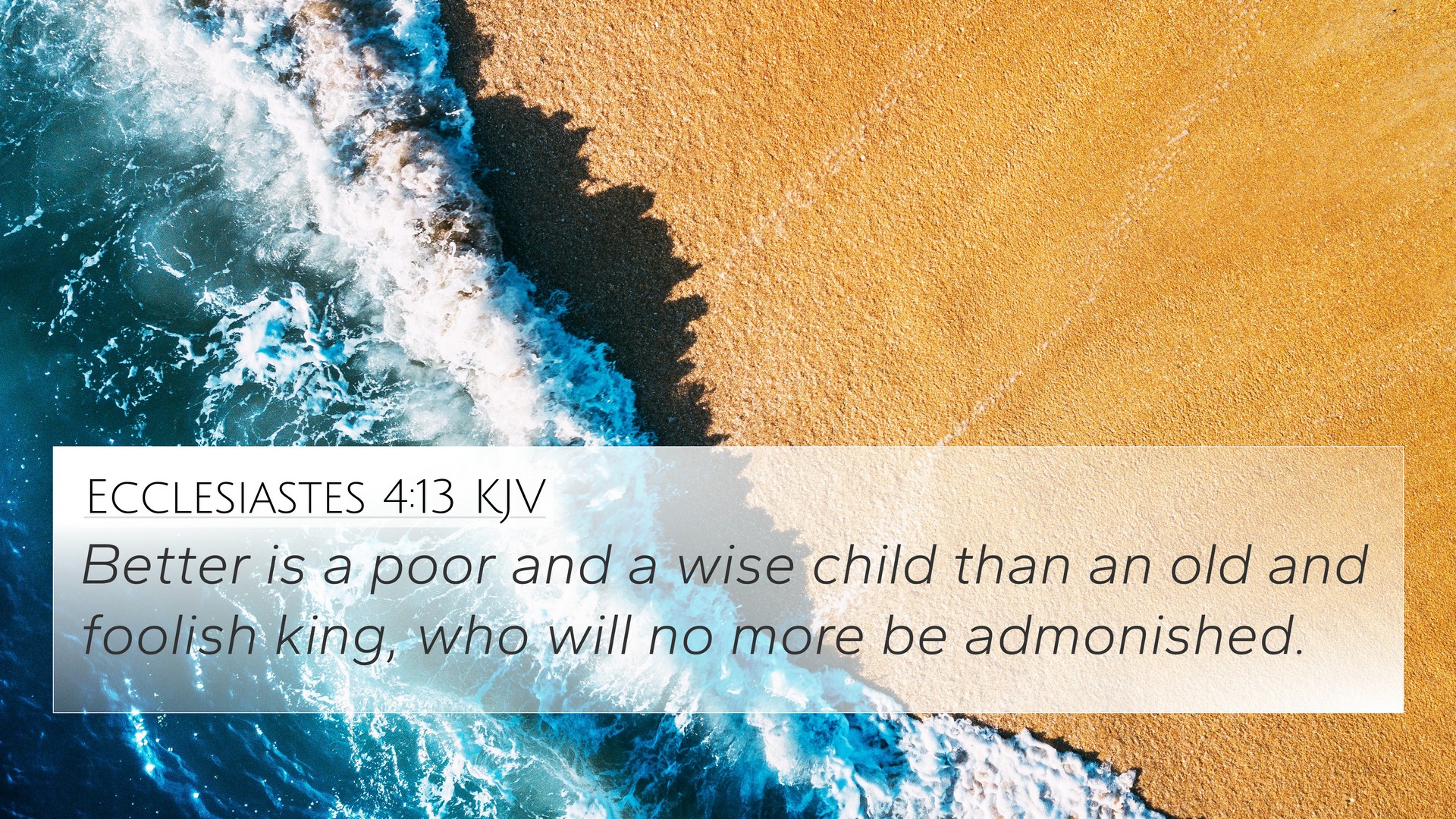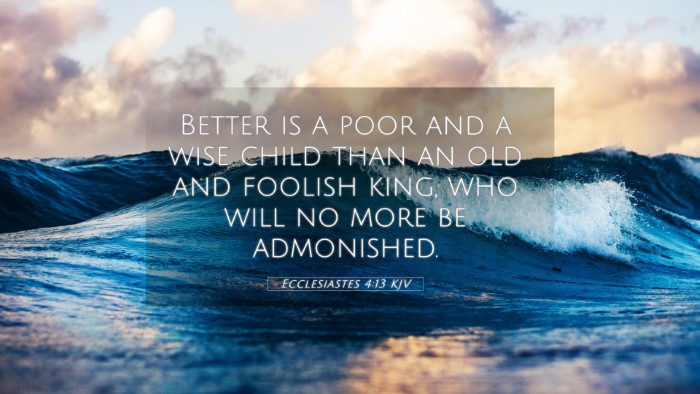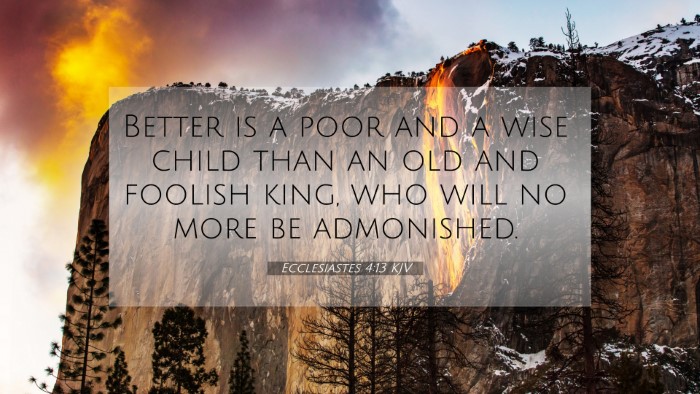Old Testament
Genesis Exodus Leviticus Numbers Deuteronomy Joshua Judges Ruth 1 Samuel 2 Samuel 1 Kings 2 Kings 1 Chronicles 2 Chronicles Ezra Nehemiah Esther Job Psalms Proverbs Ecclesiastes Song of Solomon Isaiah Jeremiah Lamentations Ezekiel Daniel Hosea Joel Amos Obadiah Jonah Micah Nahum Habakkuk Zephaniah Haggai Zechariah MalachiEcclesiastes 4:13 Similar Verses
Ecclesiastes 4:13 Cross References
Better is a poor and a wise child than an old and foolish king, who will no more be admonished.
Uncover the Rich Themes and Topics of This Bible Verse
Listed below are the Bible themes associated with Ecclesiastes 4:13. We invite you to explore each theme to gain deeper insights into the Scriptures.
Ecclesiastes 4:13 Cross Reference Verses
This section features a detailed cross-reference designed to enrich your understanding of the Scriptures. Below, you will find carefully selected verses that echo the themes and teachings related to Ecclesiastes 4:13 KJV. Click on any image to explore detailed analyses of related Bible verses and uncover deeper theological insights.
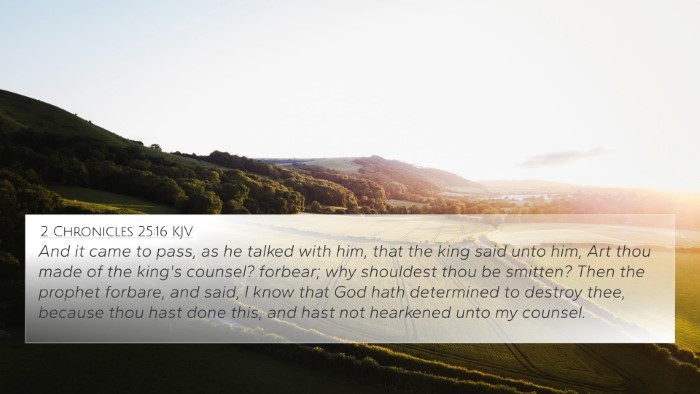
2 Chronicles 25:16 (KJV) »
And it came to pass, as he talked with him, that the king said unto him, Art thou made of the king's counsel? forbear; why shouldest thou be smitten? Then the prophet forbare, and said, I know that God hath determined to destroy thee, because thou hast done this, and hast not hearkened unto my counsel.
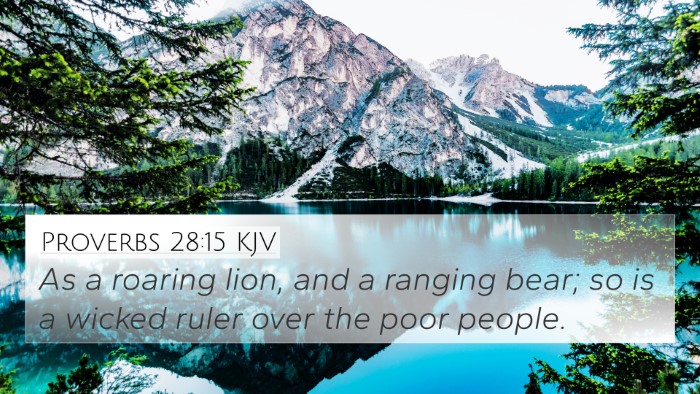
Proverbs 28:15 (KJV) »
As a roaring lion, and a ranging bear; so is a wicked ruler over the poor people.
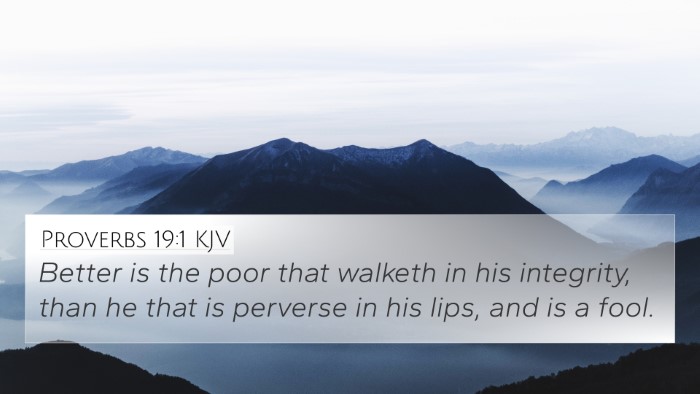
Proverbs 19:1 (KJV) »
Better is the poor that walketh in his integrity, than he that is perverse in his lips, and is a fool.
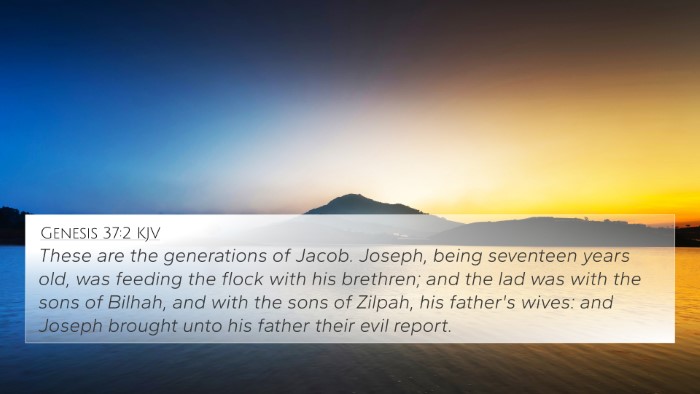
Genesis 37:2 (KJV) »
These are the generations of Jacob. Joseph, being seventeen years old, was feeding the flock with his brethren; and the lad was with the sons of Bilhah, and with the sons of Zilpah, his father's wives: and Joseph brought unto his father their evil report.
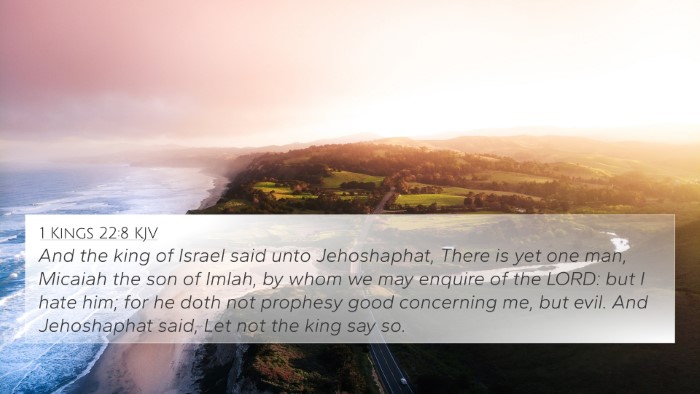
1 Kings 22:8 (KJV) »
And the king of Israel said unto Jehoshaphat, There is yet one man, Micaiah the son of Imlah, by whom we may enquire of the LORD: but I hate him; for he doth not prophesy good concerning me, but evil. And Jehoshaphat said, Let not the king say so.
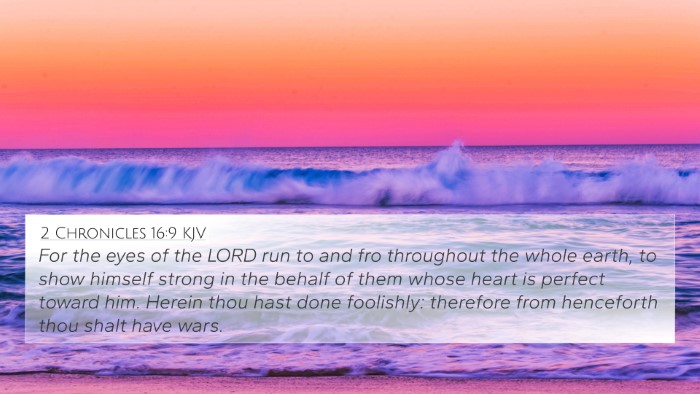
2 Chronicles 16:9 (KJV) »
For the eyes of the LORD run to and fro throughout the whole earth, to show himself strong in the behalf of them whose heart is perfect toward him. Herein thou hast done foolishly: therefore from henceforth thou shalt have wars.
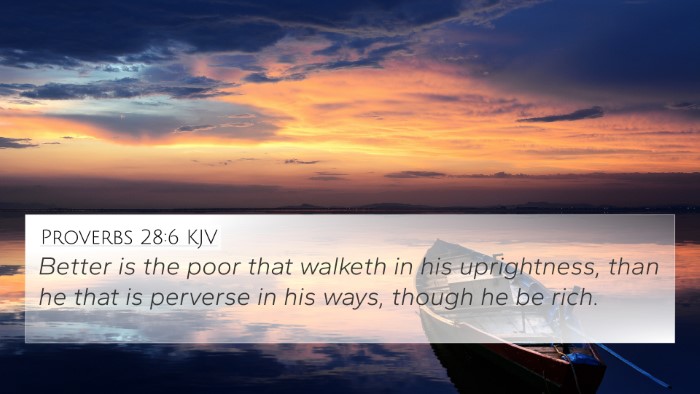
Proverbs 28:6 (KJV) »
Better is the poor that walketh in his uprightness, than he that is perverse in his ways, though he be rich.
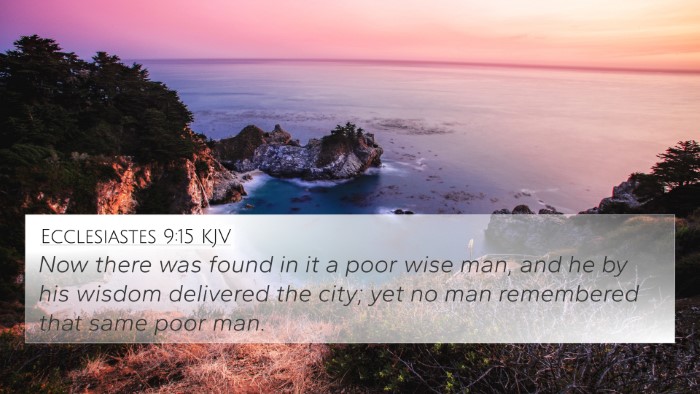
Ecclesiastes 9:15 (KJV) »
Now there was found in it a poor wise man, and he by his wisdom delivered the city; yet no man remembered that same poor man.
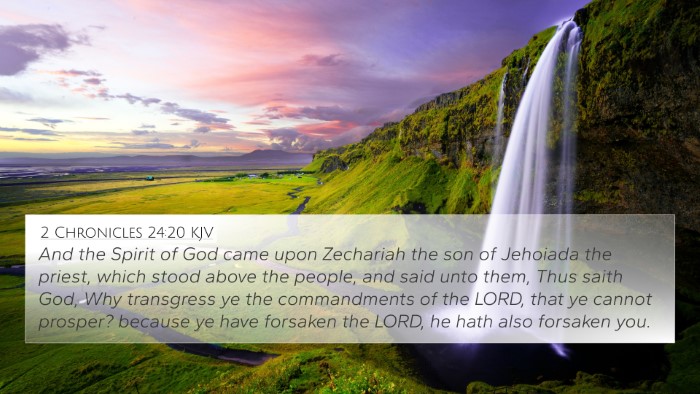
2 Chronicles 24:20 (KJV) »
And the Spirit of God came upon Zechariah the son of Jehoiada the priest, which stood above the people, and said unto them, Thus saith God, Why transgress ye the commandments of the LORD, that ye cannot prosper? because ye have forsaken the LORD, he hath also forsaken you.
Ecclesiastes 4:13 Verse Analysis and Similar Verses
Understanding Ecclesiastes 4:13
Ecclesiastes 4:13 states: "Better is a poor and a wise child than an old and foolish king, who will no more be admonished."
This verse contrasts two types of individuals: a poor yet wise child and an old foolish king. Here, the author sheds light on the value of wisdom over the trappings of wealth and power. In doing so, it emphasizes that true wisdom often resides in the humble, rather than in those who are exalted in status but lack discernment.
Insights from Public Domain Commentaries
Drawing insights from commentaries by Matthew Henry, Albert Barnes, and Adam Clarke, we can further dissect the meaning and implications of this verse.
Matthew Henry’s Commentary
Henry notes that wisdom is preferable to wealth and that age does not guarantee wisdom. He suggests that a "poor and wise child" signifies a person with great potential who can navigate life with insight, whereas an "old and foolish king" represents the folly that may come with authority if it is not accompanied by understanding.
Albert Barnes’ Commentary
Barnes emphasizes the comparative nature of the verse. He believes that the "wise child" signifies hope and future potential, which might be overlooked in the presence of someone who, despite their lofty position, exhibits folly. The imagery of a king who refuses to accept counsel indicates a stubbornness that is all too common among those in power, often leading to their downfall.
Adam Clarke’s Commentary
Clarke highlights the inherent irony of the verse. He points out that while the king possesses the status and respect of age, he may still lack the intelligence to govern wisely. He then connects this back to the theme of the book of Ecclesiastes, which is about the futility of chasing after earthly power without spiritual insight and understanding.
Bible Verse Cross-References
To deepen the understanding of Ecclesiastes 4:13, here are cross-references that highlight similar themes:
- Proverbs 16:16: "How much better to get wisdom than gold, to get insight rather than silver!"
- Proverbs 4:7: "The beginning of wisdom is this: Get wisdom. Though it cost all you have, get understanding."
- Job 32:9: "It is not only the old who are wise, not only the aged who understand what is right."
- 1 Corinthians 1:26-27: "Brothers and sisters, think of what you were when you were called. Not many of you were wise by human standards; not many were influential; not many were of noble birth. But God chose the foolish things of the world to shame the wise."
- James 1:5: "If any of you lacks wisdom, you should ask God, who gives generously to all without finding fault, and it will be given to you."
- Psalms 49:10: "For all can see that wise men die; the foolish and the senseless also perish and leave their wealth to others."
- Ecclesiastes 2:14: "The wise have eyes in their heads, while the fool walks in the darkness; but I came to realize that the same fate overtakes them both."
Thematic Connections
The themes present in Ecclesiastes 4:13 reflect broader biblical narrative threads, emphasizing the comparison of wisdom and foolishness across various texts. This offers a rich ground for comparative Bible verse analysis.
Comparative Analysis with Other Scriptures
The deliberate juxtaposition of the wise and foolish is a recurring motif in Proverbs, as well as in the teachings of Jesus. Understanding these verses alongside Ecclesiastes helps in establishing an inter-biblical dialogue. For instance, in Matthew 7:24-27, the wise man builds his house on the rock, while the foolish man builds on sand, reflecting the idea that wisdom is foundational and life-sustaining.
Tools for Bible Cross-Referencing
To engage more deeply with the connections and cross-referencing of Biblical texts, several resources can be beneficial:
- Bible concordance
- Bible cross-reference guide
- Cross-reference Bible study tools
- Bible chain references
- Comprehensive Bible cross-reference materials
Conclusion
Ecclesiastes 4:13 serves as a poignant reminder of the inherent value of wisdom, regardless of one’s social status. Through this insightful verse, we learn to prioritize understanding and discernment above worldly accolades. Utilizing tools for scriptural cross-referencing can unravel further layers of meaning within this context, allowing us to draw connections across the vast tapestry of the Bible.
